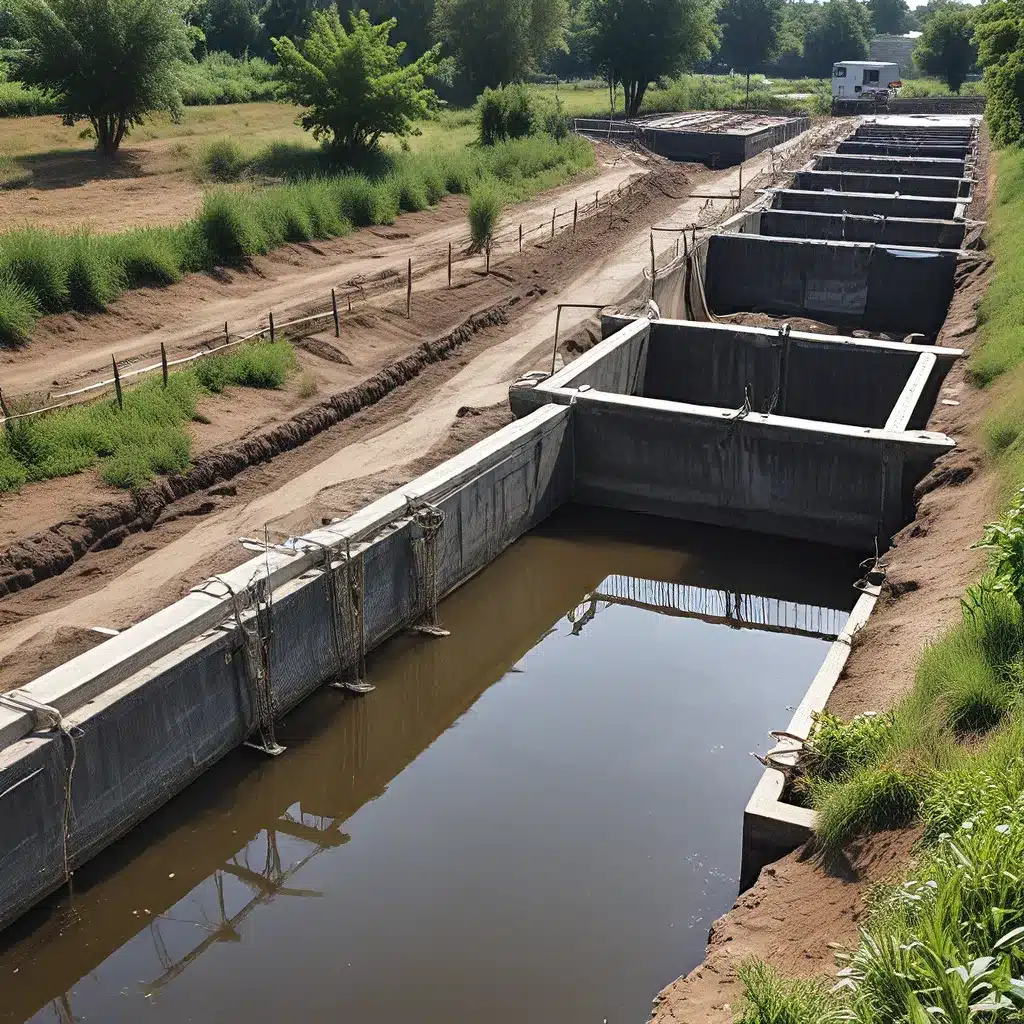
Flushing Away the Stigma: How Wastewater Treatment Supports a Sustainable Future
As I gaze out over the shimmering surface of the wastewater treatment plant, I can’t help but marvel at the vital role it plays in our community. It’s easy to take these behind-the-scenes operations for granted, but the truth is, wastewater treatment is the unsung hero in the quest for a more sustainable world.
You see, I used to be one of those people who thought wastewater treatment was just a necessary evil – something we had to deal with, but not something to get excited about. That all changed when I had the chance to dive deeper into the topic and uncover the incredible ways it’s connected to the United Nations’ Sustainable Development Goals (SDGs).
SDG 6 is all about ensuring access to clean water and sanitation for all. And let me tell you, wastewater treatment is the keystone that holds this goal together. By properly treating and managing our wastewater, we not only protect public health and the environment, but we also unlock a world of possibilities for reusing and recycling this precious resource.
The Wastewater Treatment Tango: Balancing Environmental and Economic Needs
Now, I know what you might be thinking – wastewater treatment sounds like a pretty dry and technical topic. But trust me, there’s some real drama and intrigue behind the scenes. It’s a delicate dance between environmental needs and economic realities, with wastewater treatment plants playing the lead role.
On one side, we have the imperative to safeguard our waterways, protect ecosystems, and ensure the health and well-being of our communities. This means stringent regulations, sophisticated treatment processes, and a constant vigilance to ensure we’re meeting the highest standards.
But on the other side, we have the practical considerations of cost and efficiency. Wastewater treatment plants are huge investments, and the operating costs can be substantial. So there’s this constant tension between doing what’s right for the environment and what’s feasible for the bottom line.
Research has shown that the global wastewater treatment market is expected to grow significantly in the coming years, driven by factors like population growth, urbanization, and increasing awareness of the importance of water quality. But the challenge lies in finding the right balance between environmental protection and economic viability.
Wastewater Treatment: The Unsung Hero of Sustainable Development
That’s where wastewater treatment plants come in as the unsung heroes of sustainable development. They’re not just processing our used water – they’re playing a vital role in supporting the UN’s SDGs, from clean water and sanitation to climate action and responsible consumption.
For example, did you know that by treating wastewater effectively, we can reduce the amount of pollutants and contaminants that end up in our water bodies? This directly contributes to SDG 6.3.1, which calls for a reduction in the proportion of untreated wastewater.
But it doesn’t stop there. Wastewater treatment plants are also hubs of innovation, exploring ways to turn waste into valuable resources. They’re finding new uses for the nutrients, energy, and even the water itself that’s recovered from the treatment process. This aligns with SDG 12, which focuses on responsible consumption and production.
And let’s not forget the crucial role wastewater treatment plays in preserving and restoring natural ecosystems. By keeping pollutants out of our waterways, we’re protecting the delicate balance of aquatic life and ensuring that these precious resources can be enjoyed for generations to come. This ties directly to SDG 15, which aims to protect and restore terrestrial ecosystems.
Flushing Away the Stigma: Wastewater Treatment as a Sustainable Solution
I’ll admit, when I first started learning about wastewater treatment, I had to overcome my own preconceptions and biases. It’s easy to view it as a necessary evil, something to be hidden away and forgotten. But the more I’ve delved into it, the more I’ve come to see it as a true hero in the fight for a sustainable future.
You see, wastewater treatment is not just about managing our used water – it’s about managing our resources in a way that benefits both the environment and our communities. It’s about finding innovative solutions to complex problems, and about harnessing the power of science and technology to create a better world.
And the best part? It’s not just the experts and the policymakers who can make a difference. Each and every one of us can play a role in supporting sustainable wastewater management. Whether it’s being mindful of what we flush down the drain, advocating for investment in water infrastructure, or simply spreading the word about the importance of this often-overlooked field, we can all be part of the solution.
So the next time you flush the toilet or turn on the tap, take a moment to appreciate the unsung heroes of wastewater treatment. They’re the ones who are flushing away the stigma and paving the way for a more sustainable future. And with our collective support, they’ll continue to make waves in the quest for a cleaner, greener, and more equitable world.


